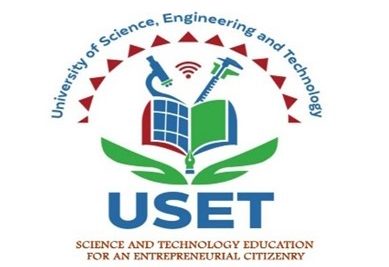THE UNIVERSITY OF SCIENCE, ENGINEERING AND TECHNOLOGY (USET)
As part of the revitalization of Technical and Vocational Education and Training (TVET), the Gambia Technical Training Institute (GTTI) is earmarked to be transformed into a University of Science, Engineering and Technology (USET). The Emerging Center (EC) of Excellence on Science, Engineering and Technology for Entrepreneurship (ECESETE) will constitute a part of USET as a Department of Engineering. ECESETE is therefore being designed to develop students to meet internationally recognized standards in Higher Education (HE) research, teaching and learning in the areas of Science, Engineering and Technology for Entrepreneurship (SETE). It is expected that as a start, the centre will develop job-creators through engineering for entrepreneurship education and training, particularly in the Civil, Geomatics, Electrical/Electronic and Mechanical Engineering disciplines. The Centre will bring Industry (and other actors) closer to higher education through research and innovation by helping to address societal needs. Currently, the labour force in the identified disciplines in The Gambia are predominantly occupied by foreign nationals; a situation that has contributed to capital flight.
The Emerging Centre activities will include the development of curricula that respond to the development priorities of The Gambia, as articulated in the NDP 2018-2021. The centre will address the challenge of human capital development through programmes that will include internship programmes for students, as well as faculty/staff development through training and mentorship by Kwame Nkrumah University of Science and Technology (KNUST), Ghana and De Montfort University (DMU) in the United Kingdom. Furthermore, KNUST and DMU will collaborate with ECESETE in implementing programmes on scientific research and technology development to promote linkages between Industry and the Emerging Centre of Excellence.
It is assumed therefore, that the services of the EC will not only provide students with the skills necessary for employment and entrepreneurship in modern societies, but it will go a long way in equipping graduates with the skills needed to spur development in The Gambia and the sub-region. To this end, the policy direction of the government is to ensure that contractors and business/company owners build schemes that will enable ECESETE’s students to carry out internships within their companies. By the same token, government ministries will be encouraged to adopt flagship programmes which would require certain services such as training and production of goods, to be outsourced to the ECESETE under the Impact Project.
The EC’s research and development component will create an incubation system by nurturing the students’ talents through hands-on and blended-learning for both entrepreneurship and industry absorption. New knowledge, skills and innovations will be tested by gauging the development impact on society, and through regional competitions prior to introducing such innovations into larger markets. This contributes to synergizing the actors of the national innovation system (NIS), as enshrined in the NSTIP, 2015-2024, towards promoting knowledge and technology transfer and enhancing innovative production that is needed to spur development in the Gambia and sub-region.
